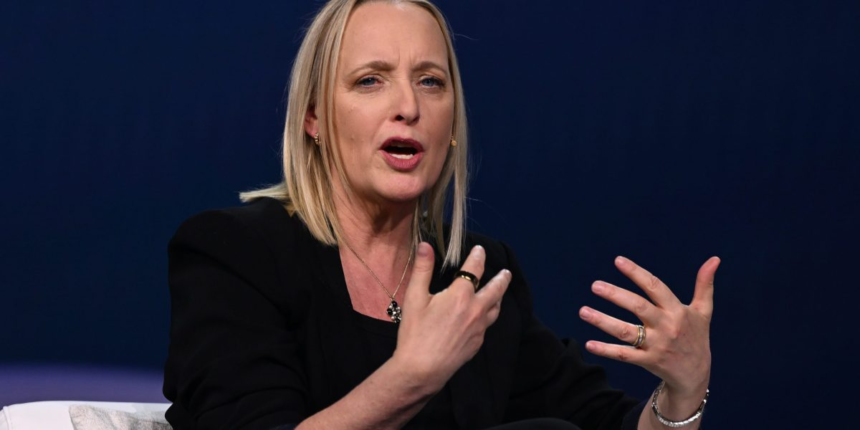“It is well recognized that advanced AI has taken the mindshare of CEOs, the C-suite and boards faster than any technology development we’ve seen in the past two decades,” Sweet said. At the same, time, she noted the widespread reporting that “value realization has been underwhelming for many” and, besides some digital-native firms, companies are finding adoption at scale to be slow-going. That’s why clients are turning to Accenture, she added. To put it in perspective, Accenture has roughly 9,000 clients and reported 37 new clients with quarterly bookings greater than $100 million in the fourth quarter alone—it reported 129 such bookings for the year. That is “reinvention” at massive scale.
Later during the call, Sweet said “gen AI seemed so simple” early on in its implementation, but Accenture is increasingly finding that “it’s not the technology that is the biggest barrier. It is actually being able to get the mindset reorganized around how best to use it, the ability to do the change management, the process reinvention.” For example, she said, most CEOs would say their organization is too siloed, and many clients have a good proof of concept, “but then just can’t scale it.”
Shortly before the earnings release, Sweet sat down with Fortune’s Alyson Shontell, and elaborated on how Accenture is grappling with this transformation just as much as its clients. This included the emotional and strategic difficulties involved with the departures of senior team leaders depart and overhauling structural models, some of them established over many years.
Sweet told Shontell: “First of all, I think we’re a good lesson in something that I’m advising CEOs all about: in order to capture the opportunity with AI, you really have to be willing to rewire your company.” She added that many times when she hears clients say that they aren’t seeing a return on investment from AI, “it’s because they’re trying to apply it to how they operate today.”
Sweet added that collaboration is “super important” but it’s “not a business strategy.” Accenture has to be the reinvention partner of choice for all its clients, she said, and that extends to Accenture’s own affairs. Along the way, they realized this was “harder than it needed to be, because our strategy and our structure were not aligned.”
Sweet told Shontell that it was clear that “we really have to change, and this change is so big, this is reversing five decades of how we’re working.” If there isn’t alignment between strategy, structure, ways of working and ways of measuring performance, she added, then “we just simply are not going to be able to go fast enough, and it’s not delivering what our clients need.”
Restructuring on this scale presents immense challenges for employees. “For our people and our clients, it was hard … How do you have the courage to do that? That’s where you have the humility, but also this idea of embracing change and innovation.” Sweet said Accenture’s culture of change enabled it to “ultimately make the hard decisions, which is what we’ve done.”









